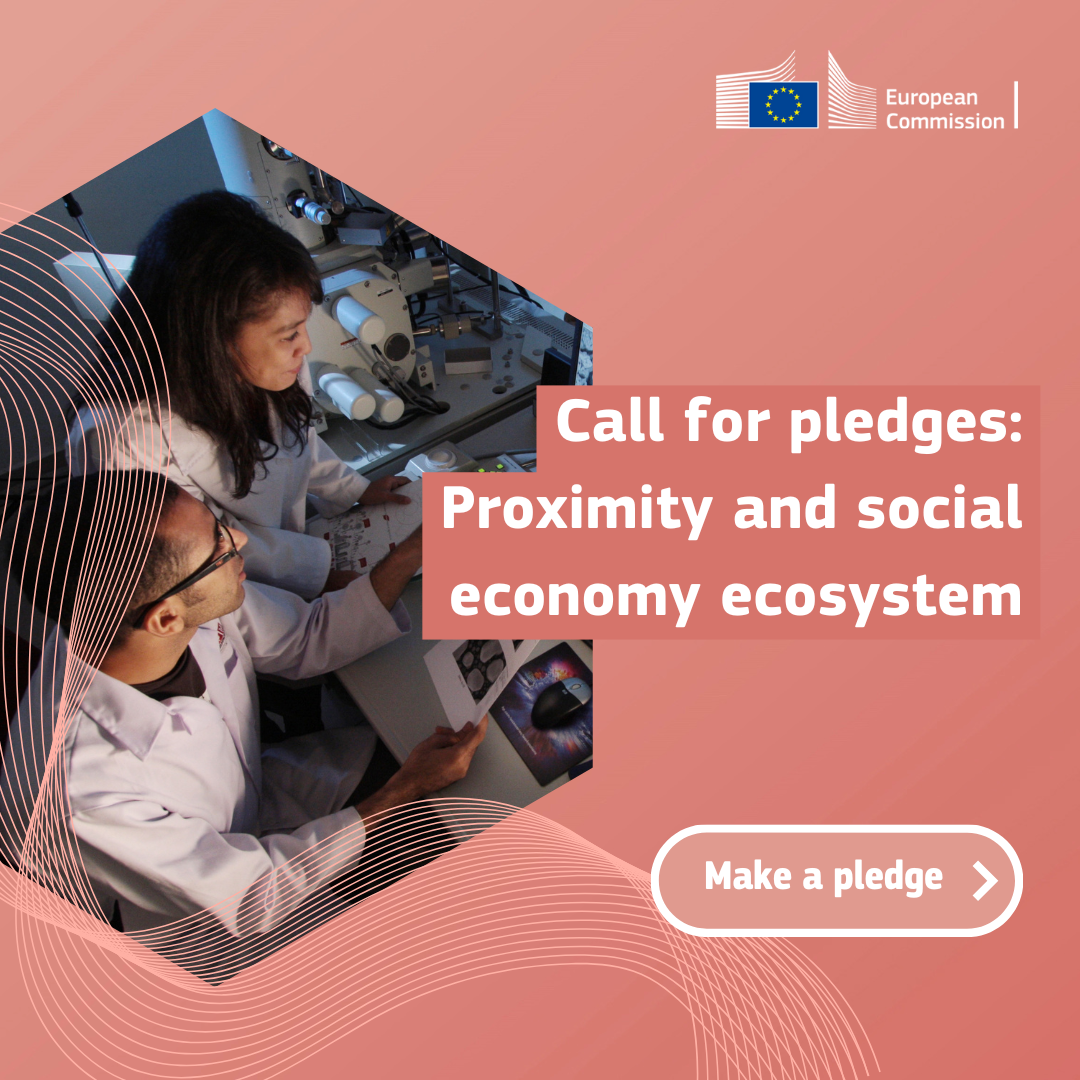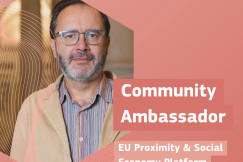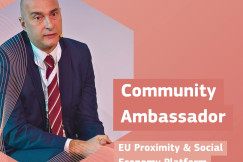Articles
25 April 2025
Progress report of the proximity and social economy Transition Pathway: Key insights
Articles
25 April 2025
Partnerships
Regenerative Green Transition
Skills
+60 more
Login / create an account to be able to react
-
14

The progress report of the proximity and social economy Transition Pathway provides a comprehensive overview of the 231 pledges submitted within the proximity and social economy ecosystem, highlighting key insights for policymakers, practitioners, and researchers. It emphasises the need for increased focus on the digital transition and engagement from the academic sector, as well as the dynamic interaction with other ecosystems. The ongoing submission of pledges, open until 1 June 2025, underscores the need for continuous analysis and support to ensure an effective implementation of the Transition Pathway.
Topics
Albania
Armenia
Austria
Belgium
Bosnia and Herzegovina
Bulgaria
Croatia
Cyprus
Czechia
Denmark
Estonia
EU-27
Finland
France
Georgia
Germany
Greece
Hungary
Iceland
Ireland
Italy
Kosovo
Latvia
Liechtenstein
Lithuania
Luxembourg
Malta
Moldova
Montenegro
Netherlands
North Macedonia
Norway
Poland
Portugal
Romania
Serbia
Slovakia
Slovenia
Spain
Sweden
Switzerland
Türkiye
Ukraine
Academic / Research and VET Institutions
Business Support Organisation
Company with 250 or more employees
Cluster Organisations
Consumer Organisations
Cultural and Heritage Organisations
Destination Management & Marketing Organisations
EU Institutions
Financial Institutions and Investors
Industry Associations and Chambers of Commerce
International Organisations
Local Authorities
Media / Journalist Organisations
National authorities
Networks and Federations / Confederations
NGOs / Non-profits
Notified Bodies
Other
Regional Authorities
SMEs (a company with less than 250 employees)
Social Economy Entity
Trade Unions
-
Thematic area
-
-
Partnerships
-
Regenerative Green Transition
-
Skills
-
Transformative Digital Transition
-
Urban and Rural Wellbeing
-
-
Interlinkages with other sectors
-
-
Proximity and social economy
-
Agri-food
-
Cultural and creative industries
-
Digital
-
Energy-renewables
-
Health
-
Tourism
-
-
Action areas and keywords
-
-
15-minute city
-
Access to Finance
-
Access to technology
-
Addressing capacity and skills gap
-
Advancing gender equality and safety at work
-
Blue Economy
-
Boosting digital skills by - and in the social economy
-
Buy social
-
Certification, labelling and self-regulation
-
Circular Economy
-
Clusters (including Cluster of social and ecological innovation)
-
Corporate social responsibility (CSR)
-
Creating financial incentives and supportive regulation for green and circular social economy business models
-
Data Maturity and data driven business models
-
Data sharing, Data management & Code of Conduct
-
Digital Platforms
-
Digital social innovation
-
Economic democracy
-
Education
-
Future workplaces
-
Greening infrastructures and business operations
-
Housing
-
ICP rights & workers involvement
-
Industrial relation and social dialogue
-
Innovation
-
Innovation as enabler for green transition and business development in the social economy
-
Internationalisation
-
Local employment
-
Local Green Deals, green business communities and citizens’ initiatives
-
Local Markets
-
Micro mobility
-
New business models
-
New business models – the platform economy
-
New European Bauhaus
-
Other action area
-
Public and private tech partnerships and support
-
Reinforcing Business to Business collaboration for greener and circular value chains
-
Responsible (Public) Procurement
-
Smart mobility
-
Social Finance
-
Socially oriented territorial regeneration
-
Strategy for Data
-
Supporting Digital Social Innovation & Tech for Good entrepreneurship
-
Sustainable Finance
-
Tech for Good
-
-
Ecosystem focus
-
-
Proximity economy
-
Social economy
-
-
Scope of activity
-
-
International
-
Local/neighbourhood
-
National
-
Regional
-
Share
We are pleased to announce the publication of the second progress report on the Transition Pathway for the proximity and social economy ecosystem. This report serves as a vital resource for stakeholders, including policymakers, social economy practitioners, and researchers, providing essential insights into the pledges submitted and highlighting the contributions and synergies within the ecosystem.
Key findings
As of March 2025, a total of 231 pledges have been submitted, with a significant 60% linked to the green transition and 35% dedicated to the digital transition. By action area, most pledges focus on addressing capacity and skills gaps, innovation for the green transition, and reinforcing business-to-business collaboration.
In terms of stakeholder contributions, social economy entities lead with 72 pledges, followed by 56 from EU networks and 34 from business support organisations. Notably, 14 organisations have submitted five or more pledges, with Strasbourg (city and Eurometropole) standing out with 13 submissions.
Geographically, most pledges were made at the EU level (46). France contributed with 38 and Italy with 32, so far. Interestingly, five pledges have also come from outside the EU, specifically from Jordan, the USA, and Switzerland.
Specific contributions from organisations such as Social Economy Europe, Euricse, and the Microfinance Centre are also highlighted, emphasising the importance of synergies within the ecosystem. The report also calls attention to the interplay with other ecosystems, reinforcing the potential for cross-sectoral collaboration.
The report underscores that only 34 of the total pledges are linked to the digital transition, indicating a pressing need for greater focus in the digital area. Key action areas identified for improvement include access to technology, data sharing, and the development of new business models. Furthermore, there is currently limited engagement from academia, as no pledges have been submitted by universities or research organisations.
We invite you to read the full progress report attached below to get more detailed insights and findings.
Documents
Comments (0)
See also
-
12
PSE Platform Ambassador highlight: Snezana Andric and Young Ambassadors
- Categories
- Partnerships Regenerative Green Transition Skills +68 more
-
96
PSE Platform Ambassador highlight: Flaviano Zandonai and National Consortium CGM
- Categories
- Partnerships Regenerative Green Transition Skills +68 more
-
25
PSE Platform Ambassador highlight: Giorgio Nanni and Legacoop
- Categories
- Partnerships Regenerative Green Transition Skills +68 more




